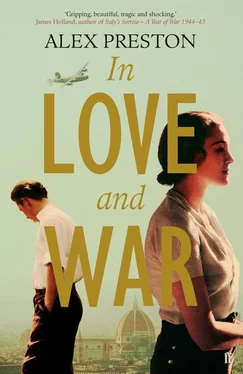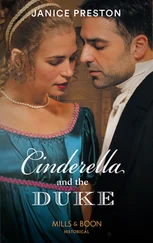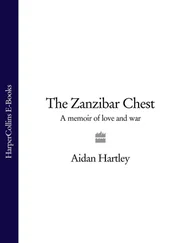They haven’t seen Douglas for a week. Strindberg has gone back to Austria for a fortnight’s walking tour and Piccolo’s is boarded up. When they cycle past Davis & Orioli on the way to the woods at Lungarno Colombo, they look up at the shuttered windows on the second floor, peer through the blinds of the bookshop, hoping to catch a flash of white hair. Gerald has rung the doorbell several times without answer. They ask at Betti’s and Vieusseux’s Library, but nobody has seen him. Esmond talks of him often, of his stern eyes, the catty dazzle of his smile; ‘He’s all right!’ they mimic and laugh.
One afternoon Esmond visits the English Cemetery while Gerald and Fiamma climb the hill to swim at L’Ombrellino. He knows that Elizabeth Barrett Browning is buried there, and Clough, and Landor, and feels it’s a pilgrimage he should make, a way of touching the England he’s left behind. He reads in Forster that the English had once spent their Sunday afternoons strolling through the bosky graveyard, admiring the tombs by Holman Hunt and Stanhope.
It is crushingly hot in the graveyard. Weeds have grown up over the paths, some of the stones have shifted and fallen and lean on each other like ancient, lichen-covered drunks. He walks aimless diagonals across the cemetery, from the shadow of one tree to the next, trying to find Clough’s grave and remembering lines from Amours de Voyage. ‘St Peter’s disappoints me,’ he half-sings to himself, ‘Rome in general might be called a rubbishy place—’ The cemetery is stuffy with an English melancholy, prim and out of sorts with the swooning, histrionic tombs of the Italians that stretch up the hillside behind San Miniato. He leaves feeling embarrassed, parched and damp with sweat.
On the way back from the cemetery, walking down the via Laura, is Douglas. One hand taps his silver cane on the cobbles, the other holds the arm of a young girl. Esmond hurries to catch them.
‘Norman!’
Douglas turns around with an irritated sheen. His eyes soften when he sees Esmond and he attempts a smile. He looks shaky, unsteady on his feet. Little deltas of red and blue snake out from his nose and cheeks. He reaches into his pocket for a Toscano, lights it, inhales slowly.
‘Morning, Esmond. Well met. Let me present a young friend of mine, Roberta Drago. She’s all right, this one.’
The girl is perhaps eleven years old, smartly dressed with long, dark, serious hair. He gives her a little pat on the backside. She holds out a thin, gloved hand to Esmond, who shakes it.
‘We were just heading up to the gelato place by the station, care to join us?’
The girl runs ahead as Douglas takes Esmond’s arm. He can feel the occasional shudder passing through him. The old man speaks in a low, confidential voice, his breath sour with smoke.
‘It’s a miracle. Never thought I’d look at a girl again, but this one? Heavenly little thing.’ He winks at Esmond. ‘She’s run away from home, you know. This is our first trip out for a week.’
Esmond looks ahead to the girl, who now breaks into a skip across the drain covers. Douglas stumbles and clutches at his chest, breathing heavily.
‘Do you want to sit down?’
Douglas shakes his head and allows his lips to open into a damp smile.
‘One gets a little groggy at my age. If it isn’t heart, it’s liver, it’s kidneys. These doctors, I don’t know whether they’re discussing me or their breakfast.’
They eat their ices on a bench in the Piazza Santa Maria Novella. A group of Fascist Youth is carrying out exercises in the square, weapons to their shoulders, black boots stamping on the paving stones. The girl runs with her ice-cream to look in the window of the perfumery on the other side of the square. Douglas watches her as his short, fleshy tongue darts out to lap at his ice.
Esmond feels suddenly nauseous and leans forward. He thinks of Fiamma and Gerald in the cool air above the city, the water on their skin. He stands. ‘Any word of Pino?’
‘He’s being operated on tomorrow in Venice. They’re hopeful.’ A pause. ‘Come and see me some time,’ Douglas says, shrugging his shoulders. ‘If you like. Bring some of your writing, perhaps. Can’t write a word myself these days. It’s no good.’
Esmond leaves him on the bench, staring towards the girl pressed against the window of the shop. He looks back at Douglas, his careful white hair, his once-handsome face now untying into papery jowls. Lawrence had described him as a fallen angel in Aaron’s Rod , Esmond remembers. Thinking himself unobserved, Douglas allows a tremor to seize hold of him. His ice-cream drops to the ground, cone-up. The girl turns back, skips across the square and sits beside him, taking his hand in hers. The two of them sit there, in the monstrous sunlight, like a long-married couple until Esmond tires of watching and heads back to the via Tornabuoni.
He is aware of a sound creeping into his dreams. It is the darkest heart of the night, so hot he’d left the windows and shutters open. He drags himself slowly from sleep and opens his eyes, searching the darkness until he recognises the trilling of the telephone in the library, echoing up the stone steps and into the apartment. He slips from bed, sticky and fuzzy-headed, and pads down the corridor. Gerald is standing in the doorway of his room.
‘What time is it?’ he asks, yawning.
‘Search me. Two?’
Fiamma joins them in her nightdress. It seems to Esmond that every door and window in the house has been left ajar, all of the fans turning, but there is still no air. They walk down the steps and enter the library together, the old-fashioned stick phone shrieking on a desk beside the window. Gerald crosses to pick it up.
‘Hullo. Yes. Right. Bugger. We’ll be over shortly.’
He hangs up and pinches his fingers at his forehead.
‘Bugger,’ he says.
‘What is it?’ Fiamma asks.
‘No time,’ he says, striding back towards the doorway. ‘It’s Norman, he needs us. Meet in the courtyard in five minutes.’
Wearing shorts and a linen shirt, Esmond stands in the moonlight watching moths as big as hummingbirds circle the lit windows of the apartment. Occasionally a bat swoops down to snatch one from the air. Gerald and Fiamma come down together.
‘We need a car. Norman’s in a fix and we must get him out of Florence. We could head up to L’Ombrellino and borrow George’s but it’s a hell of a way.’
Esmond pats his pocket.
‘I’ve got the keys to the church. Father Bailey keeps his Alfa in the garage at the back. I’m sure he wouldn’t mind. If it’s an emergency, I mean.’
They cross the Ponte Santa Trinità, then down the via Maggio, past the sleeping birdcages and quietly through the wicket gate of the church, tiptoeing along a passageway and into the garage. The room is full of half-assembled engines, bicycles without wheels, a pony trap resting on its haunches. Esmond slides open the doors which give onto the Piazza Santo Spirito. The square is empty, cardboard boxes by the roadside for the dustbin men, a small pyramid of wine bottles leaking onto the earth outside a bar.
The key is in the ignition. Esmond sits beside Gerald in the front while Fiamma squeezes into the seats at the back. The engine starts with a roar that makes them all jump.
‘I haven’t driven in a while,’ Gerald shouts over the noise.
As they edge out into the square, Esmond looks back to see that a light has come on in the apartments next to the church. He thinks he sees Bailey outlined in the window, looking at them. They pull through the square and through the silent streets of the Oltrarno, along the south side of the river. Moonlight has turned the city to bone. Finally, they drive across the cobbles of the Ponte alle Grazie and pull up outside Davis & Orioli.
Читать дальше












